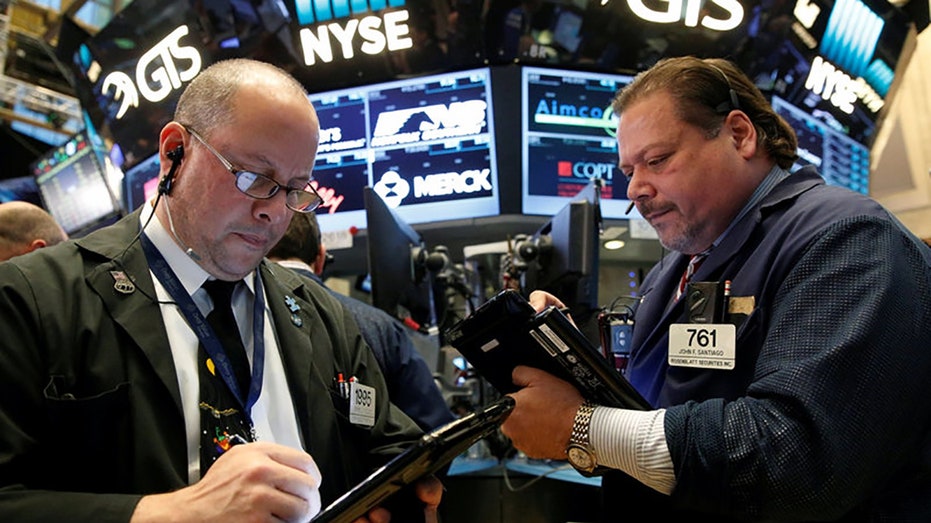Global deals sink to lowest level in over a decade
M&A in the first quarter came to $575.1 billion, down 48% during the same period a year ago
A series of factors had a major impact on global mergers and acquisitions (M&A) in the first quarter of 2023.
Dealmaking shrank to its lowest level in more than a decade with rising interest rates, high inflation and fears of a recession taking a toll.
M&A volumes in the quarter slumped 48% to $575.1 billion as of March 30, compared to $1.1 trillion during the same period last year, according to Dealogic data.
Markets were roiled in March by a banking crisis that started in the United States with Silicon Valley Bank and spread to Europe with the Swiss government-orchestrated sale of Credit Suisse to UBS.
UBS BRINGS BACK PAST CEO WITH CREDIT SUISSE DEAL AHEAD

First Citizens BancShares purchased the deposits of Silicon Valley Bank. (REUTERS/Dado Ruvic/Illustration / Fox News)
"The first quarter had extraordinary levels of volatility and uncertainty - more than expected going into the year. And that has the impact of postponing some announcements," said Anu Aiyengar, global head of M&A at JPMorgan Chase & Co.
M&A volumes dropped 44% to $282.7 billion in the U.S. and 70% to $81.87 billion in Europe. Deal volumes in Asia Pacific fell 29% to $176.1 billion.
"Having a well-functioning financing market is a critical ingredient for M&A. Market volatility has clearly been a challenge and weighed on deal volumes in the quarter," said Brian Haufrect, co-head of M&A for Americas at Goldman Sachs Group.

Traders work on the floor of the New York Stock Exchange in New York. (REUTERS/Brendan McDermid)
FIRST MAJOR US RAILROAD MERGER IN DECADES WILL GO FORWARD
Among the quarter's highlights included:
- Pfizer's $43 billion acquisitions of cancer biotech Seagen.
- A Silver Lake-led consortium's $12.5 billion deal for software maker Qualtrics International.
- CVS Health's $10.6 billion takeover of primary care provider Oak Street Health.
Reuters contributed to this report.





















